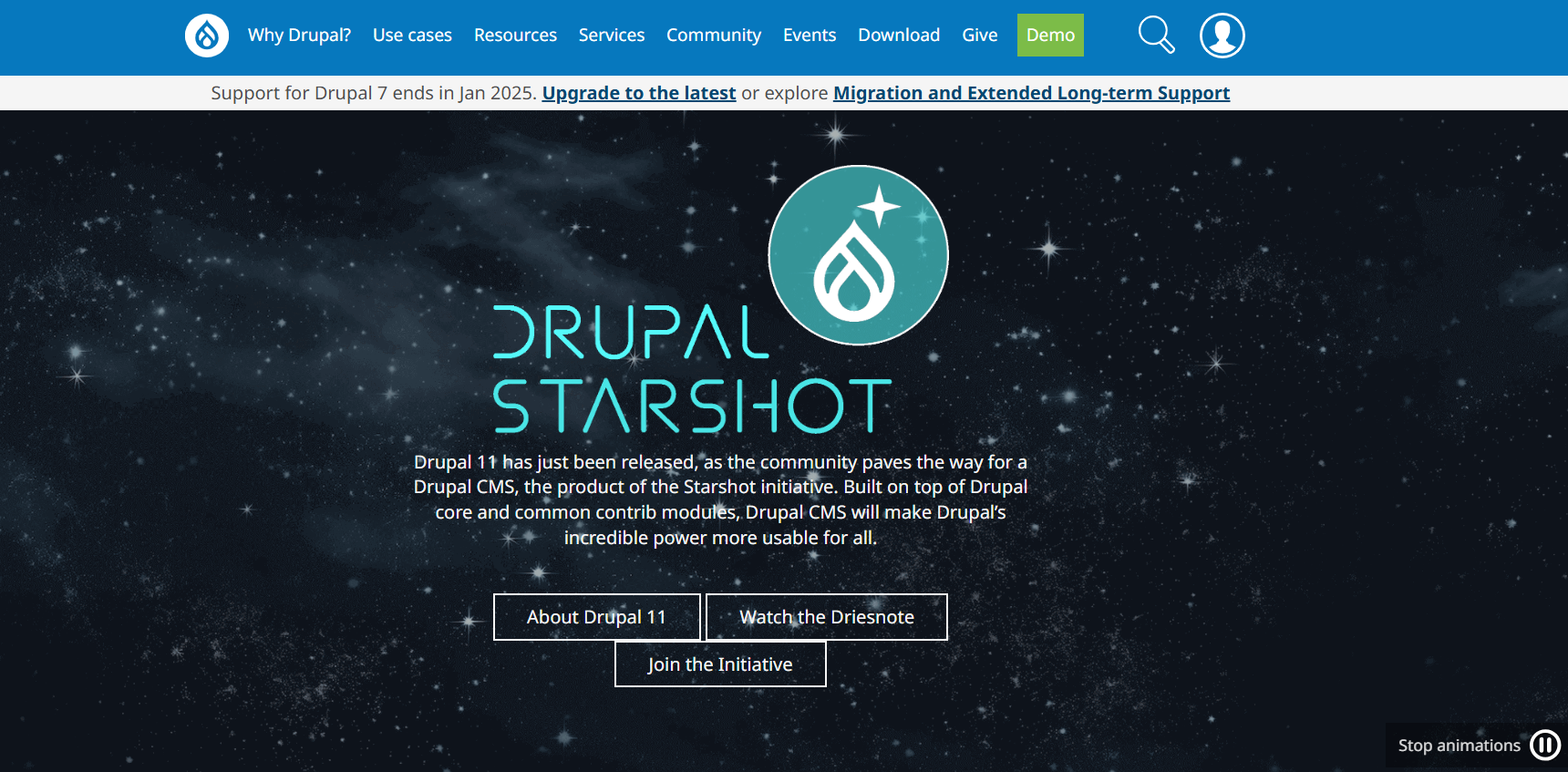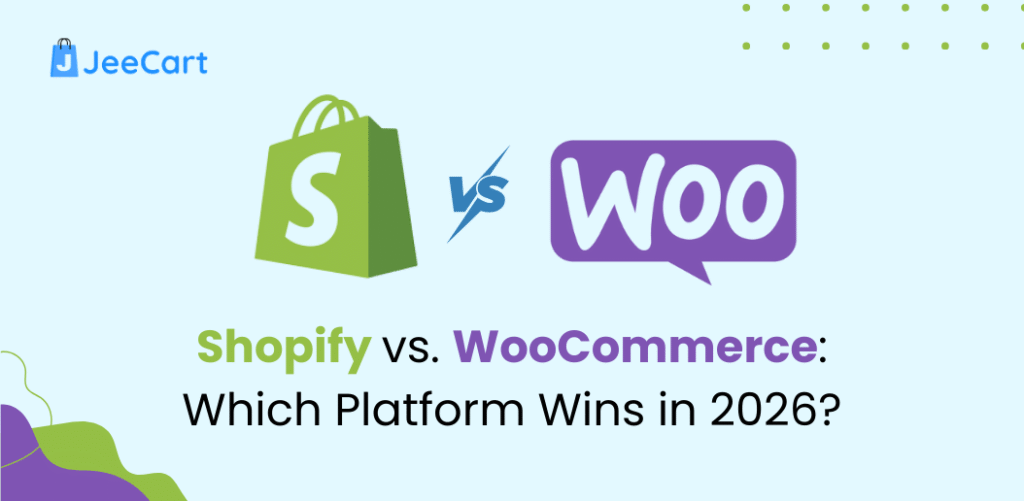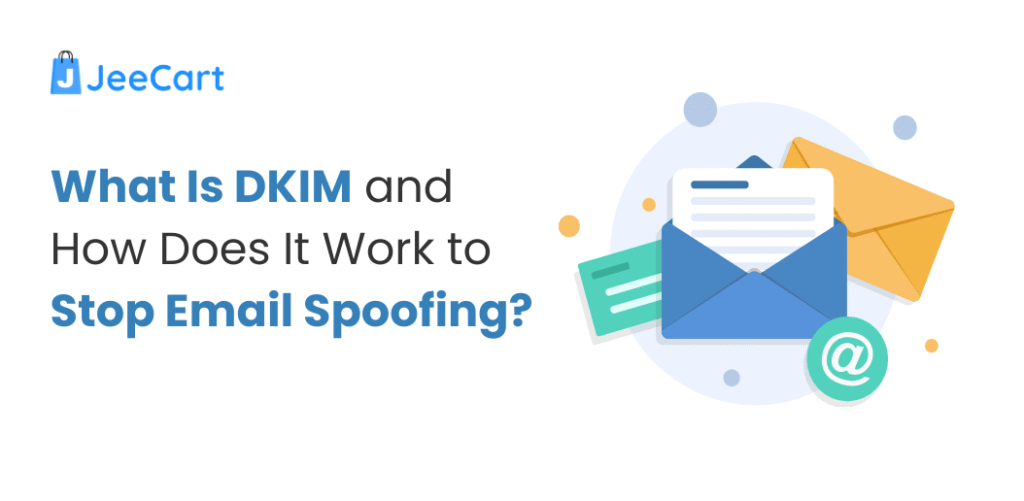The digital transformation of the global economy has ushered in a golden era for eCommerce. For businesses transitioning to online sales, choosing the right tools to manage their operations is pivotal. One of the most critical choices is selecting types of CMS (Content Management System) platform. The right platform can help a business establish a robust online presence, manage sales efficiently, and ensure long-term growth. In this article, we’ll explore the concept of eCommerce CMS platforms, the factors to consider when choosing one, and a detailed review of the best eCommerce CMS available.
What is an eCommerce CMS Platform?
An eCommerce CMS platform is a type of software that allows businesses to create, manage, and scale their online stores without needing in-depth technical knowledge. Unlike traditional CMS platforms designed primarily for publishing content, CMS for eCommerce platforms come equipped with specialized tools tailored for online selling. These tools include product catalog management, shopping cart functionality, secure payment gateways, and shipping integration.
The main goal of an eCommerce CMS system is to provide a user-friendly interface that simplifies the process of launching and managing an online store. Whether you’re a small business or an established enterprise, using the best CMS systems can reduce operational complexity, streamline workflows, and enhance customer experiences.
What to Consider When Choosing an eCommerce CMS Platform
With a plethora of eCommerce CMS platforms available, it’s essential to assess which one aligns best with your business goals. Here are key factors to consider when making your decision:
1. Ease of Use
Not every business owner has technical expertise. You should choose the platforms with intuitive dashboards and drag-and-drop functionality that are ideal for beginners. They minimize the learning curve and allow users to focus on growing their business rather than grappling with technicalities.
2. Customization Options
Your eCommerce platform should be flexible enough to meet your unique branding and operational needs. Look for platforms that offer customizable templates, plugins, and third-party integrations.
3. Scalability
As your business grows, your platform must be capable of accommodating increased traffic, products, and transactions. Then, you should choose a CMS that supports scalability without compromising performance.
4. SEO Capabilities
Search engine optimization (SEO) can’t be ignored when it comes to the ways to drive organic traffic to your online store. Opt for platforms with built-in SEO tools, such as customizable URLs, meta tags, and sitemap generation.
5. Security
Protecting customer data and securing transactions is a top priority. Select a platform with robust security measures, such as SSL certification, data encryption, and compliance with industry standards like PCI DSS.
6. Pricing and Cost Structure
CMS platforms come with varying pricing models. Consider the upfront costs, monthly fees, transaction charges, and any additional costs for add-ons or extensions.
7. Customer Support
Reliable customer support ensures that help is readily available when needed. Look for platforms with 24/7 support via chat, email, or phone.
Top 10+ eCommerce CMS Platforms
Now that we’ve covered the basics, let’s dive into the top eCommerce CMS platforms available today.
1. Shopify

Shopify is one of the most widely recognized eCommerce platforms, trusted by millions of merchants across the globe. Designed to cater to both beginners and experienced users, it offers a robust and intuitive platform that simplifies the process of creating and managing an online store. Shopify is known for its extensive library of customizable templates, seamless integrations, and scalability, making it a favorite choice for businesses aiming to expand their online presence.
Key Features
- Drag-and-drop interface for effortless store creation.
- A vast library of customizable themes.
- Integrated payment gateways supporting multiple currencies.
- Mobile-friendly design and responsive templates.
- Extensive app store for added functionality.
- Built-in analytics and reporting tools.
Best For
Small to medium-sized businesses and entrepreneurs who want a hassle-free, scalable solution.
2. BigCommerce

BigCommerce is a comprehensive eCommerce platform that provides powerful tools and features for businesses of all sizes. Its flexibility and scalability make it suitable for startups as well as large enterprises. BigCommerce is particularly noted for its multi-channel selling capabilities, allowing businesses to reach customers on platforms like Amazon, eBay, and Facebook. With advanced SEO tools, extensive customization options, and no transaction fees, it’s a preferred choice for growth-oriented businesses.
Key Features
- Multi-channel selling on platforms like Amazon, eBay, and Facebook.
- Flexible API integrations for advanced customizations.
- SEO-friendly tools, including customizable URLs and optimized site speed.
- No transaction fees on any pricing plan.
- Unlimited product listings and bandwidth.
Best For
Businesses looking to scale quickly with minimal technical challenges.
3. WooCommerce

WooCommerce is a popular open-source eCommerce solution built specifically for WordPress users. Known for its versatility and customization options, WooCommerce allows businesses to transform their WordPress websites into fully functional online stores. Its extensive library of plugins, themes, and integrations makes it highly adaptable to a variety of business needs. Whether you’re a small business owner or a developer, WooCommerce provides the tools to build a tailored and scalable eCommerce store.
Key Features
- Extensive library of plugins and extensions.
- Integration with popular payment gateways like Stripe and PayPal.
- Open-source framework for limitless customization.
- Large support community for troubleshooting and advice.
- Affordable and ideal for those already using WordPress.
Best For
Businesses with technical expertise or those familiar with WordPress who need a highly customizable solution.
4. Drupal

Drupal is a powerful open-source CMS platform that caters to businesses requiring advanced customization and scalability. Paired with Drupal Commerce, it transforms into a feature-rich eCommerce solution. Its robust framework supports multilingual functionality, extensive security measures, and a high degree of customization. Ideal for enterprises and tech-savvy teams, Drupal can handle complex product catalogs and large-scale websites, making it a top choice for businesses with unique eCommerce requirements.
Key Features
- Advanced content management capabilities.
- Multilingual support for global businesses.
- High-level security features.
- Extensive community support and developer resources.
- Ability to handle large catalogs and complex product types.
Best For
Enterprises and tech-savvy teams require custom solutions and extensive scalability.
5. Adobe Commerce (formerly Magento)

Adobe Commerce, formerly known as Magento, is a highly regarded platform designed for enterprise-level businesses. Its robust architecture provides unmatched scalability and customization options, making it an excellent choice for companies with large-scale operations. Adobe Commerce offers a wide array of tools, including AI-driven product recommendations, advanced marketing features, and seamless integrations with other Adobe products. It’s a top choice for businesses with complex needs and the resources to invest in a high-end platform.
Key Features
- Advanced marketing and promotional tools.
- Multi-store functionality to manage multiple brands.
- Integration with Adobe’s suite of products.
- AI-powered product recommendations.
- Scalable architecture for high-volume sales.
Best For
Large enterprises with a dedicated development team and complex eCommerce needs.
6. OpenCart

OpenCart is a free and open-source eCommerce platform that offers a straightforward and budget-friendly solution for online stores. Its user-friendly dashboard simplifies the management of products, orders, and returns. OpenCart is highly customizable, with a vast range of plugins and themes to suit various business needs. This platform supports multi-store management and provides essential eCommerce features without the need for subscription fees, making it an attractive option for small and medium-sized businesses.
Key Features
- Multi-store support for managing multiple shops from a single dashboard.
- Wide range of plugins and themes for added functionality.
- No monthly subscription fees.
- Easy management of orders, returns, and product reviews.
Best For
Small businesses with basic eCommerce needs and limited budgets.
7. Wix

Wix is a popular website builder that includes built-in eCommerce functionality, making it a great choice for beginners and small business owners. Known for its simple drag-and-drop interface, Wix allows users to create professional-looking websites without any coding experience. It offers a variety of modern, visually appealing templates and integrates seamlessly with payment gateways and shipping solutions. Wix is perfect for individuals and businesses looking to establish an online presence quickly and effortlessly.
Key Features
- Simple drag-and-drop editor for building websites.
- Modern, visually appealing templates.
- Integration with payment gateways and shipping solutions.
- Built-in SEO tools for better visibility.
- A marketplace for apps and additional functionalities.
Best For
Individuals and small businesses launching their first online store.
8. HubSpot

HubSpot is best known for its marketing and CRM tools, but it has evolved to offer eCommerce capabilities that seamlessly integrate with its existing platform. HubSpot’s strength lies in its ability to combine eCommerce with inbound marketing strategies. With powerful CRM integration, marketing automation, and analytics, it’s an excellent choice for businesses focused on nurturing customer relationships. HubSpot’s user-friendly interface and scalability make it a valuable tool for growth-oriented companies.
Key Features
- CRM integration for streamlined customer management.
- Marketing automation for email campaigns and lead nurturing.
- Detailed analytics and reporting tools.
- Customizable templates and drag-and-drop editor.
- Scalability for growing businesses.
Best For
Businesses focusing on inbound marketing and customer relationship management.
9. Squarespace

Squarespace is a design-driven platform that combines aesthetic excellence with eCommerce functionality. Known for its award-winning templates and clean, modern design, Squarespace is ideal for creative professionals, artists, and small businesses. Its built-in SEO tools, blogging features, and social media integrations provide a comprehensive solution for online visibility. With its user-friendly interface and all-in-one functionality, Squarespace is a great option for those looking to build a stylish and functional online store.
Key Features
- Award-winning templates optimized for mobile devices.
- Built-in blogging and SEO tools.
- Easy integration with social media and email marketing.
- Secure and reliable hosting included.
- No need for additional plugins or extensions.
Best For
Creative professionals, artists, and designers who value aesthetics and simplicity.
10. PrestaShop

PrestaShop is a free, open-source eCommerce platform known for its versatility and extensive customization options. Ideal for businesses looking for a cost-effective solution, PrestaShop provides a wide array of features and add-ons to enhance store functionality. It supports multiple languages and currencies, making it suitable for businesses targeting global markets. With a dedicated community of developers and users, PrestaShop is an excellent choice for small to medium-sized businesses with technical resources.
Key Features
- Wide range of add-ons for enhanced functionality.
- Multilingual and multi-currency support for global reach.
- User-friendly admin panel.
- Large community of developers and users.
- No subscription costs; only pay for hosting and add-ons.
Best For
Small to medium-sized businesses with a technical team for development and maintenance.
11. Volusion

Volusion is a well-established eCommerce platform tailored to meet the needs of small and medium-sized businesses. It offers an all-in-one solution, including inventory management, payment processing, and SEO tools. Its intuitive dashboard makes it easy to set up and manage an online store without technical expertise. Volusion also provides a mobile app for on-the-go store management, making it a reliable choice for entrepreneurs seeking convenience and affordability.
Key Features
- Intuitive dashboard for managing inventory and sales.
- Built-in SEO tools to boost online visibility.
- Mobile app for managing your store on the go.
- Integrated payment processing.
- Subscription-based pricing with no hidden fees.
Best For
Small businesses looking for a straightforward and affordable solution.
Conclusion
Choosing the right eCommerce CMS platform is a critical decision that impacts the success of your online store. Whether you’re a small business owner looking for simplicity or a large enterprise seeking scalability, there’s a platform tailored to your needs.
Shopify and BigCommerce offer user-friendly solutions for rapid growth. WooCommerce and Drupal provide extensive customization for tech-savvy users. Adobe Commerce and OpenCart cater to enterprises and budget-conscious businesses, respectively. Platforms like Wix and Squarespace excel in aesthetics and ease of use, making them perfect for beginners and creatives.
Evaluate your specific needs, budget, and technical expertise before making a decision. With the right eCommerce CMS platform, you can create a seamless shopping experience, drive sales, and set your business on the path to success.




